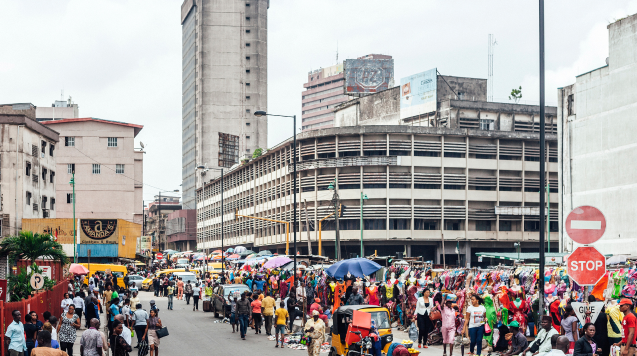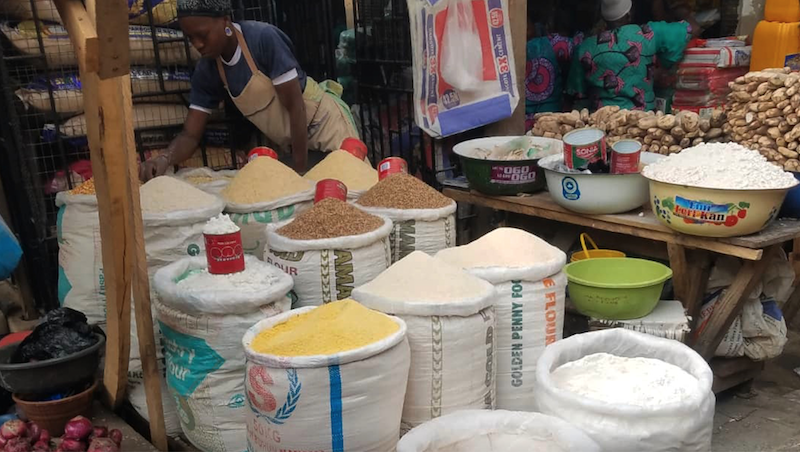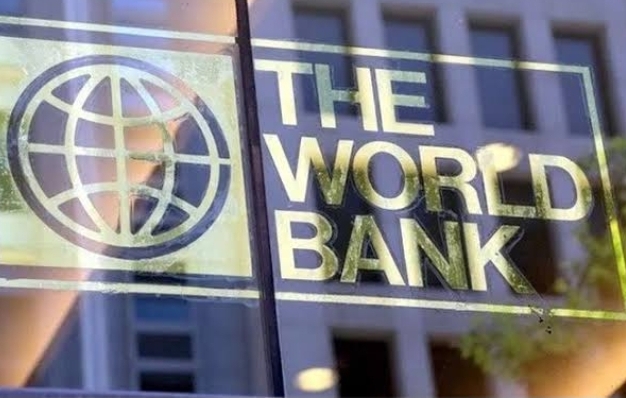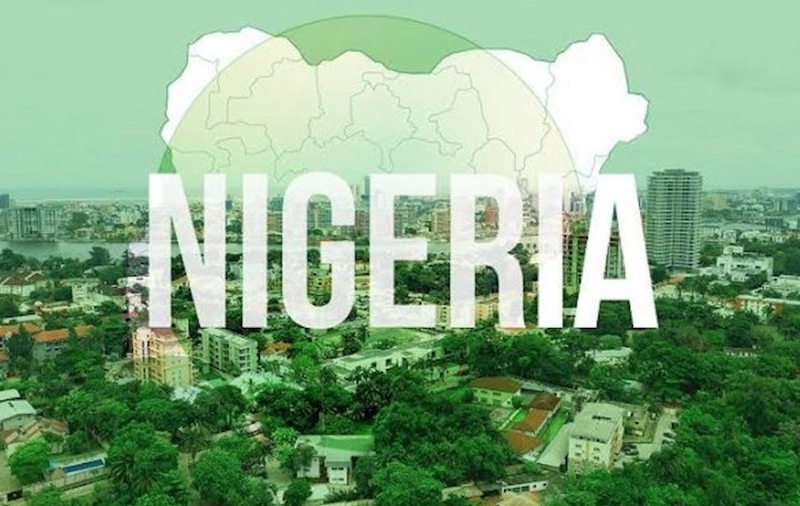The National Bureau of Statistics (NBS), says Nigeria’s headline inflation rate increased to 22.22 per cent on a year-on-year basis in April 2023.
This is according to the NBS Consumer Price Index (CPI) and Inflation Report for April 2023 released in Abuja on Tuesday.
According to the report, the figure is 0.18 per cent points higher compared to the 22.04 per cent recorded in March 2023.
It said on a year-on-year basis, the headline inflation rate in March 2023 was 5.40 per cent higher than the rate recorded in April 2022 at 16.82 per cent.
“This shows that the headline inflation rate (year-on-year basis) increased in April 2023 when compared to the same period in April 2022,’’ it said.
The report showed that contributions of items on divisional level increase in the headline index, are food and non-alcoholic beverages at 11.51 per cent.
While housing, water, electricity, gas and other fuel at 3.72 per cent.
Others are clothing and footwear at 1.70 per cent; transport at 1.45 per cent; furnishings, household equipment and maintenance at 1.12 per cent and education at 0.88 per cent, and health at 0.67 per cent.
“Miscellaneous goods and services at 0.37 per cent; restaurant and hotels at 0.27 per cent; alcoholic beverage, tobacco and kola at 0.24 per cent; recreation and culture at 0.15 per cent and communication at 0.15 per cent.”
It said the percentage change in the All-Items Index in April 2023 was 1.91 per cent on a month-on-month basis.
“This indicates a 0.05 per cent increase compared to the 1.86 per cent recorded in March 2023.
”This means that in April 2023, on average, the general price level was 0.05 per cent higher relative to March 2023.”
The percentage change in the average CPI for the 12 months ending April 2023 over the average of the CPI for the previous 12 months period was 20.82 per cent.
“This indicates a 4.37 per cent increase compared to the 16.45 per cent recorded in April 2022.’’
It said increases were recorded in all Classification of Individual Consumption by Purpose (COICOP) divisions that yielded the headline index.
The report said the food inflation rate in April 2023 was 24.61 per cent on a year-on-year basis, which was 6.24 per cent higher compared to the rate recorded in April 2022 at 18.37 per cent.
“The rise in food inflation is caused by increases in prices of bread and cereals, potatoes, yams and other tubers, and oil and fat, fish, vegetable, fruits, meat, and spirits.”
It said on a month-on-month basis, the food inflation rate in April was 2.13 per cent, which was a 0.06 per cent rise compared to the rate recorded in March 2023 at 2.07 per cent.
The report said the “All items less farm produce’’ or Core inflation, which excludes the prices of volatile agricultural produce stood at 20.14 per cent in April 2023 on a year-on-year basis.
“This increased by 5.96 per cent compared to 14.18 per cent recorded in April 2022.’’
“On a month-on-month basis, the core inflation rate was 1.46 per cent in April 2023, which was a 0.78 per cent drop compared to what it stood at in March 2023 at 1.84 per cent.”
According to the report, the highest increases were recorded in prices of gas, passenger transport by Air, liquid fuel, fuels, lubricants for Personal transport equipment, and vehicles spare parts.
“Others are maintenance and repair of personal transport equipment and solid fuel, medical services, and passenger transport by road, among others.
“The average 12-month annual inflation rate was 17.91 per cent for the 12 months ending April 2023, this was 4.23 per cent points higher than the 13.68 per cent recorded in April 2022.”
The report said on a year-on-year basis in April 2023, that the urban inflation rate was 23.39 per cent, which was 6.05 per cent higher compared to the 17.35 per cent recorded in April 2022.
“On a month-on-month basis, the urban inflation rate was 2.05 per cent in April 2023, representing a 0.05 per cent rise compared to March 2023 at 2.00 per cent.’’
It said the corresponding 12-month average for the urban inflation rate was 21.50 per cent in April 2023.
“This was 4.49 per cent higher compared to the 17.01 per cent reported in April 2022.’’
The report said on a year-on-year basis in April 2023, the rural inflation rate was 21.14 per cent, which was 4.82 per cent higher compared to the 16.32 per cent recorded in April 2022.
“On a month-on-month basis, the rural inflation rate in April 2023 was 1.78 per cent, which increased by 0.06 per cent compared to March 2023 at 1.72 per cent.’’
It said the corresponding 12-month average for the rural inflation rate in April 2023 was 20.18 per cent, which was 4.27 per cent higher compared to the 15.91 per cent recorded in April 2022.
On states’ profile analysis, the report showed in April 2023, all items inflation rate on a year-on-year basis was highest in Bayelsa at 26.14 per cent, followed by Kogi at 25.57 per cent, and Rivers at 24.95 per cent.
It, however, said the slowest rise in headline year-on-year inflation was recorded in Borno at 19.60 per cent, followed by Taraba at 19.64 per cent, and Sokoto at 19.90 per cent.
The report, however, said in April 2023, all items inflation rate on a month-on-month basis was highest in Cross River at 3.05 per cent, Bayelsa at 2.92 per cent and Rivers at 2.62 per cent.
“Katsina at 0.52 per cent, followed by Jigawa at 0.74 per cent and Osun at 0.96 per cent recorded the slowest rise in month-on-month inflation.”
The report said food inflation in April 2023, on a year-on-year basis, was highest in Kogi at 29.50 per cent, followed by Kwara at 29.48 per cent, and Bayelsa at 29.38per cent.
“Sokoto at 19.55 per cent, followed by Taraba at 20.20 per cent and Jigawa at 20.68 per cent recorded the slowest rise in food inflation on a year-on-year basis.’’
The report, however, said on a month-on-month basis, April 2023 food inflation was highest in Cross River at 4.65 per cent, followed by Bayelsa at 3.61 per cent, and Ekiti at 3.49 per cent.
”With Jigawa at 0.14 per cent, followed by Katsina at 0.44 per cent and Osun at 0.62 per cent recorded the slowest rise on month-on-month inflation.’’
Traders, consumers lament tomatoes price hike
Meanwhile, some tomato traders and consumers have lamented the recent scarcity and hike in the price of the produce in the country.
They said this in separate interviews with the NAN on Tuesday in Lagos.
The traders who attributed the scarcity and hike to seasonal occurrence said there was nothing they could do but to sell in accordance with the market value.
They, however, predicted that the scarcity would likely last till late September or early October.
Mr Musa Yakubu, a tomatoes trader in a popular Ile-epo market at the Alimosho Local Government, said the boom season of tomatoes had past.
Yakubu added that harvest season of tomatoes was over, hence the recent hike in the price of the produce.
“The tomatoes specie available currently is the plum tomatoes from the south, popularly known for its high water content and tangy taste,” Yakubu said.
On his part, Mr Umar Yusuf, another tomatoes seller, said the scarcity of the produce led to the hike in the price of the produce.
“Tomatoes are currently expensive because they are out of season, transporting them from north to south is also a major factor that has affected price hike of the produce.
“A medium basket of tomatoes goes between N24,000 and N30,000 depending on the size of the fruit, while a raffia basket sells for N42,000.
“A small basket of tomatoes presently sells at N16,000 as against N5,000 or N6,000 in March/April, this is because the produce is out of season.
“There is nothing we can do about it, it is a seasonal scarcity,” Yusuf said.
Some of the consumers said they have no choice but to improvise the use of tomatoes in their cooking due to the price hike.
Mrs Josephine Kallo, a resident at Amuwo-Odofin area of the state, says she buys only what she can afford.
“The cost of tomatoes has risen astronomically, we used to buy a small paint bucket for N1,500 some weeks ago but now it goes for as high as N4,000.
“The traders said that we are out of the season of tomatoes as the rains have begun and it is destroying the crops.
“We have no choice but to buy what we can afford or improvise to make meals for our families,” Kallo said.
Another resident in Ojo area of the state, Mrs Nelice Jaule, said since the scarcity of the produce, she no longer buys fresh tomatoes.
“I don’t buy fresh tomatoes again since the recent hike in the price. In spite of the price increase, the quantity is nothing to take home.
“We now make use of tin tomatoes, red bell peppers, habanero pepper and a lot of onions for our stews as tomatoes have become gold,” Jaule said.
Mrs Patricia Amanyi, a resident at Isolo area of the state, called for preservation measures for the produce to avert recurrence.
“This seasonal scarcity and consequent hike in tomatoes price is something we have observed over the years.
‘Since the price hike this year, I have not bought tomatoes, I make use of tomatoes that I preserved in January, February and March during the peak season.
“If we can get to learn how to preserve tomatoes in its peak season, we will not face this annual scarcity and hike in the price of the produce,” Amanyi said.







